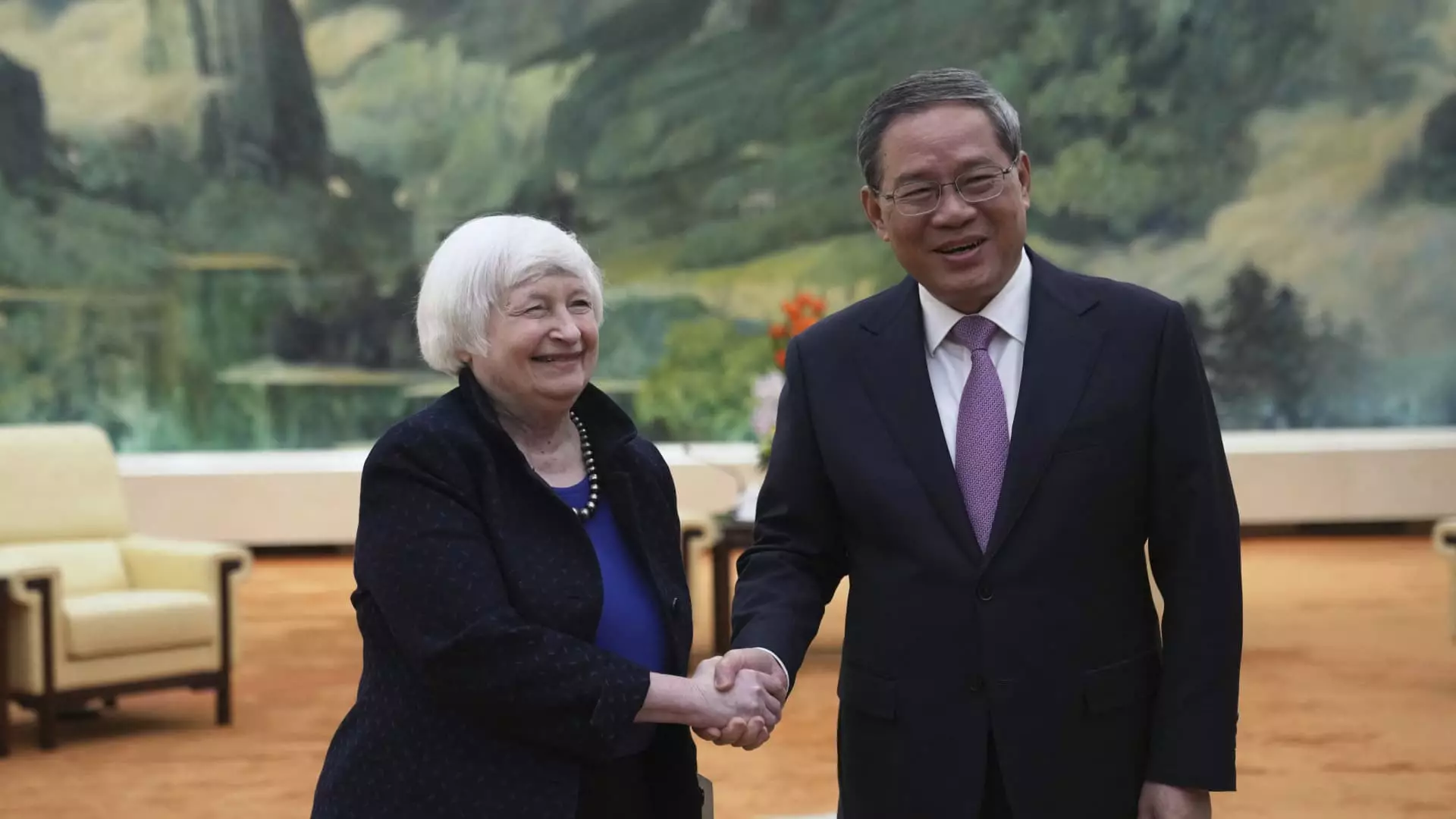During a recent meeting between U.S. Treasury Secretary Janet Yellen and Chinese Premier Li Qiang, both leaders emphasized the importance of having difficult conversations in order to maintain a stable relationship between the two economic superpowers. Yellen highlighted the need for Washington and Beijing to responsibly manage their complex relationship, particularly in light of China’s excess factory capacity in key industries such as electric vehicles and clean energy products. While there have been tensions in the past over various issues such as trade disputes and geopolitical differences, both Yellen and Li expressed a commitment to constructive dialogue and mutual respect in order to move forward.
Yellen has been vocal about the threat posed by China’s overproduction of electric vehicles, solar panels, and other clean energy products to not only the U.S. but also to other countries. This issue has become a focal point of her recent visit to China, as she seeks to address the imbalance in production capacities between the two nations. Despite efforts to normalize economic relations and manage tensions, the rapid growth of China’s EV industry has led to a situation where the country’s manufacturing capacity far exceeds demand projections. This imbalance could have significant implications for global markets and trade dynamics in the coming years.
In an effort to address these challenges, Yellen and Vice Premier He Lifeng have agreed to launch a dialogue focused on promoting “balanced growth” between the U.S. and China. This forum is intended to provide a platform for discussing trade issues, market access, and fair competition practices in order to protect the interests of American workers and businesses. Yellen emphasized the need for both countries to cooperate and demonstrate leadership in addressing pressing global challenges, highlighting the shared responsibility of the two largest economies in managing their relationship effectively.
China’s ambitious economic agenda, which includes a strong emphasis on developing cutting-edge technologies such as EVs, commercial spaceflight, and life sciences, has raised concerns about the implications of its excess manufacturing capacity. While China has made significant strides in becoming a global leader in these industries, questions remain about the sustainability of its growth model and the potential repercussions for international trade dynamics. The Chinese government’s investment in these strategic sectors has not only fueled domestic innovation but has also raised eyebrows in countries like the U.S. where similar industries are key drivers of economic growth.
Despite efforts to promote dialogue and cooperation, tensions persist between the U.S. and China over issues such as trade imbalances and industrial overcapacity. Chinese state media have pushed back against Yellen’s concerns about excess capacity, arguing that imposing restrictions on China’s industries will not benefit either country in the long run. Instead, there is a call for greater collaboration and understanding to overcome barriers to mutually beneficial cooperation. As both nations continue to navigate their complex relationship, finding common ground and addressing shared challenges will be crucial for maintaining stability and promoting economic prosperity on a global scale.



Leave a Reply